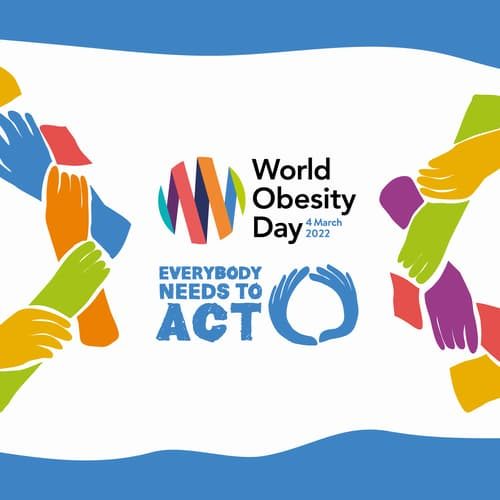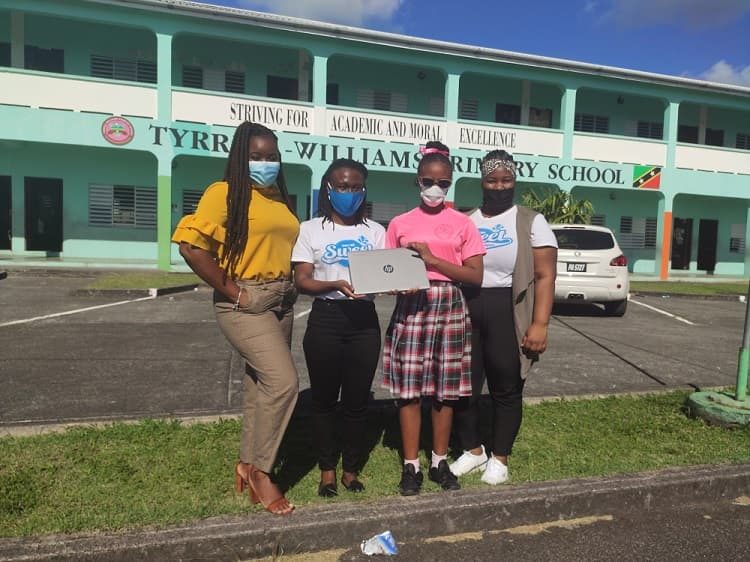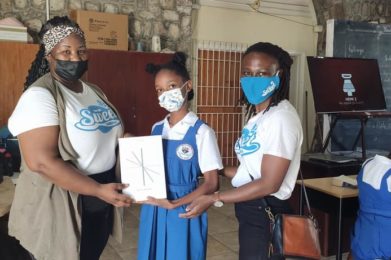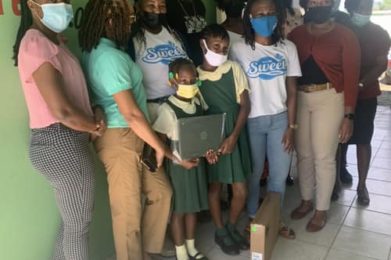World Obesity Day Activities
Every year, the 4th March is set aside as World Obesity Day and this year the theme was ‘Everybody Needs to Act.’
Obesity is defined by the World Health Organisation as ‘abnormal or excessive fat accumulation that presents a risk to health.’ Today, obesity is one of the major global health challenges that we face with 800 million people across the world being affected. Those affected by obesity are at an increased risk of developing non-communicable diseases (NCDs) such as type 2 diabetes, cancer, heart disease and hypertension and it can also negatively impact mental health. Additionally, obesity itself is seen as a non-communicable disease.
The cause of obesity is multi-faceted and complex. A variety of factors such as genetic risk, biology, an unhealthy diet, physical inactivity, mental health and the environment all contribute to the development of obesity. Therefore, to tackle obesity a comprehensive, all-of-society approach is required i.e. ‘Everybody Needs to Act’
In St. Kitts and Nevis, we have not escaped the reach of obesity. Like many Caribbean countries our obesity rates are high and one of the highest in the world. Research has shown that 45% of adults and 26% of children in St Kitts and Nevis are obese, and this is contributing to the high rate of NCDs in the Federation. Sadly, data shows that NCDs contribute to 63% of deaths in St Kitts and Nevis and 83% of hospitalisations. To improve the health of our nation action is required and, therefore, on World Obesity Day, led by the Healthy Caribbean Coalition, we joined civil society organisations from across the region to call on Caribbean leaders to introduce evidence-based healthy food policies. These include:
- Front of package warning labels which easily alert consumers to foods that are high in salt, sugar, saturated fat and trans fat
- A tax of at least 20% on sugar-sweetened beverages to deter the purchase of these drinks
- The restriction of the sale and marketing of unhealthy foods in and around schools
These policies have been shown to facilitate healthy behaviours and contribute to the creation of a healthy food environment, in short, these policies make it easy for the public to be healthy.
Also, as part of World Obesity Day, we hosted a childhood obesity webinar entitled ‘Community-Based Approaches to Tackling Childhood Obesity.’ This webinar aimed to showcase the work of CSOs in St Kitts and Nevis and explore the lessons we can learn from these efforts. Featured in this webinar were:
- Lessons Learnt from Nevis Academy’s No Sugar Challenge – Dr Andrea Bussue, Principal of the Nevis Academy Primary school
- Improving the health of children through medical education – Ifeanyi Ndukwu, President, Because We Care
- Rotarians Tackling Childhood Obesity – Dominic Matthew, Rotary Club of Liamuiga
- Nutrition for School-Aged Children – Renell Daniel, Public Health Nutritionist
- Lessons Learnt from the Diabetic Screening of School Children – Dr Reginald O’Loughlin, Public Relations Officer, St Kitts Diabetes Association
- Advocating for Evidence-Based Health Policies, Isalean Phillip, Advocacy Officer, Lake Health and Wellbeing
This was a very informative event that highlighted the important role that civil society plays in tackling important public health issues. If you missed this event, you can watch the recording below.





























